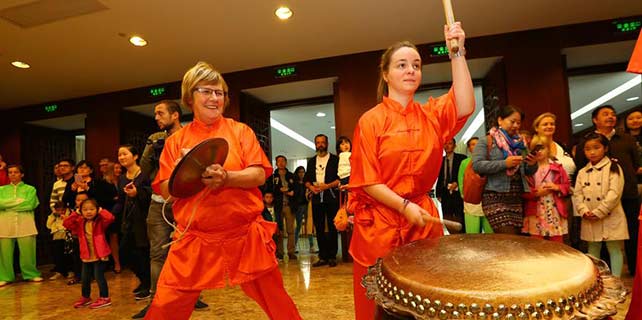Rare earths price defying gravity
The price of rare earths may fluctuate at high levels in the next months, according to a research note from China Merchants Securities.
Despite the government's efforts to curb financial speculation, supervise environmental protection and prohibit illegal mining, there is still strong demand in the market. With the supply of rare earths-especially light rare earths-unable to meet short-term demand, prices still have room to rise, according to the report.
By Sept 7, the average price of praseodymium-neodymium oxide, the iconic rare earth product, rose to 520,000 yuan ($80,280) per metric ton, a 6.1 percent increase over the price only a week ago, and double the price at this time last year, according to Baiinfo.com, a raw material information provider.
The price of neodymium oxide rose to 480,000 yuan per ton, up 2.1 percent week-on-week, said Baiinfo.com.
"The domestic supply of rare earths will be insufficient in the second half of the year, due to related policies such as total quantity control and combating illegal exploitation," said Ma Rongzhang, secretary-general of the Association of China Rare Earth Industry at the Ninth China Baotou Rare Earth Industry Forum on Aug 28.
"The total amount of rare earth quota this year is only 105,000 tons, but the praseodymium nedymium sector needs at least 180,000 tons for rare earth production."
China's supply of rare earths accounts for around 80 percent of the global supply, so the country's output affects the international prices of the raw material. Both China and the rest of the world have produced an inadequate supply of rare earth this year.
In July, the national rare earth office announced its intent to normalize and institutionalize a crackdown on illegal exploitation and production.
Illegal production accounts for about 30 percent of the country's total rare earths output, and the regulators' control and supervision of illegal actions started several years ago.
"Illegal miners are trying to resume production with deregulation, regardless of the related policies," said Xu Ruoxu, an analyst at Shenwan Hongyuan Securities.
Rare earth mining and smelting are heavily polluting industries, so China Merchants Securities says that the strict environmental supervisions will also have a big affect on the rare earth industry.
The Chinese government is implementing increasingly stringent environmental protection policies, in order to improve the current air quality situation. Especially in smog-plagued Beijing and nearby cities, the Ministry of Environmental Protection has issued stricter emission standards and published regulations to reduce production of heavily polluting industries.
The 13th Five-Year Plan (2016-20) ranks rare earths as one of sectors of capacity reduction along with other metals including steel and aluminum, requiring one-third reduction in smelting and separation capacity by cutting 200,000 tons annually until 2020.






















